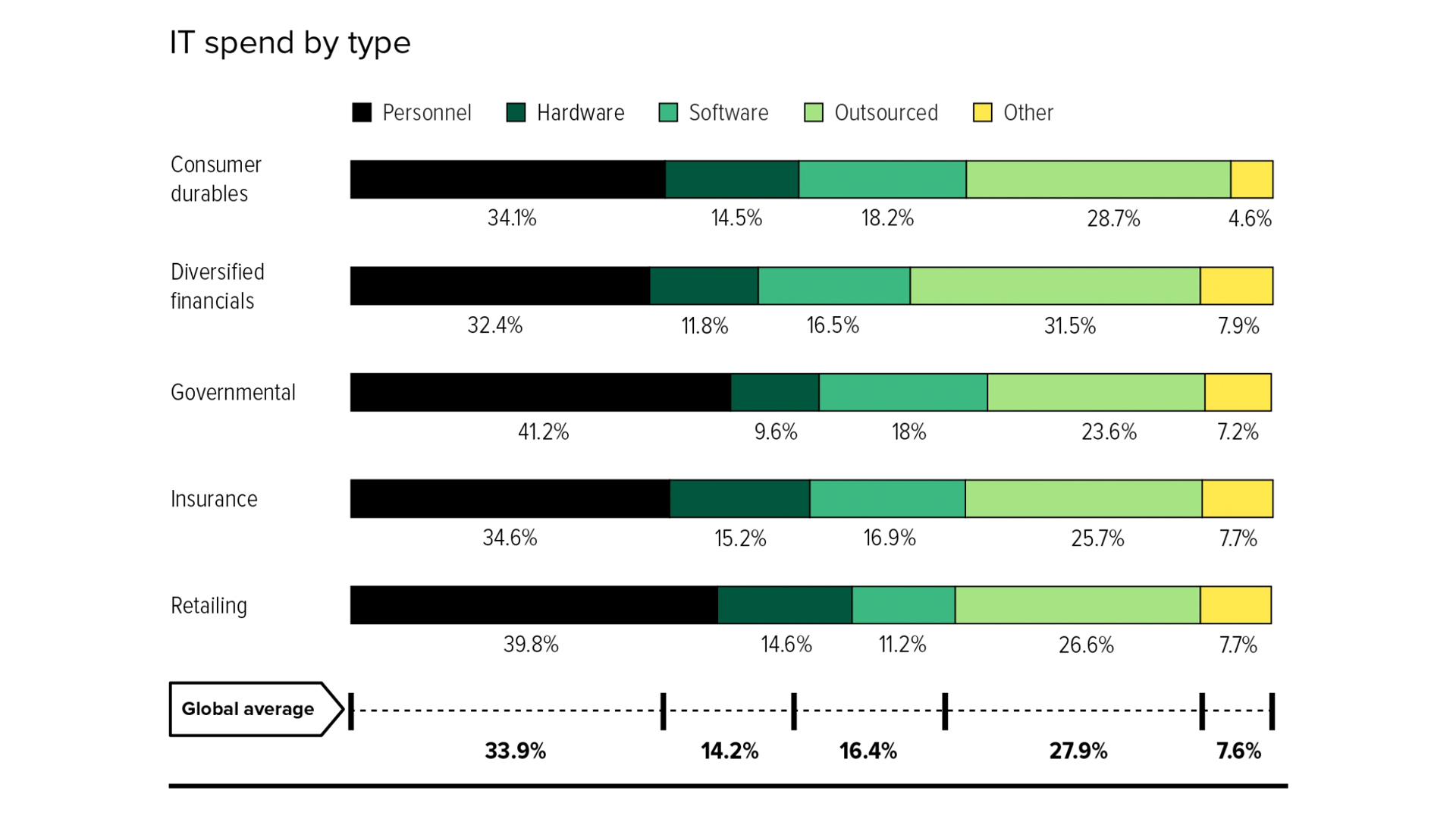IT teams need to optimise and tackle tech debt ahead of economic downturn, warn analysts
Forrester argues shrinking budgets will require tough decisions on spending, although innovation should continue where possible


IT teams have been advised to focus on cost optimisation and tackling tech debt ahead of what is likely to be a period of shrinking budgets and economic downturn.
Many companies’ IT departments can expect a marked reduction in spending in the coming years and will have to scrutinise every investment in their tech stack to ensure it remains viable in the long term, according to researchers at Forrester.
The change in approach to IT spending will contrast with that of the last major economic shakeup at the start of the COVID-19 pandemic.
In early 2020, the main focus for companies was on spending big to ensure digital infrastructure was in place to facilitate widespread remote working.
“The response to the current economic headwinds will necessitate optimisation and [portfolio] rationalisation while maintaining resilient, modern environments - all without undercutting the organisation’s future fit tech strategy,” said Chris Gardner, VP, research director at Forrester.
IT departments are advised to scrutinise every tool and process, looking for potential economic savings. However, certain investments should be pitched and defended, since they may lead to large long-term savings.
Investments in tools that optimise cloud costs, for example, is one area in that IT teams may look to either increase or defend their investments, according to the analyst house.
Sign up today and you will receive a free copy of our Future Focus 2025 report - the leading guidance on AI, cybersecurity and other IT challenges as per 700+ senior executives
Compute and storage demand is only going to increase, it said, and cloud will continue to be a key deployment model. Since businesses already pay a premium for the flexibility and scalability that cloud computing offers, optimising this cost will be crucial in mitigating economic headwinds.
Resilient operational infrastructure is another area that could lead to long-term savings, both in terms of minimising operational downtime and ensuring the smooth running of remote-working technology.
On the technical side, it's recommended that businesses identify declining, old, or risky investments, and phase out the spending on these.
Virtualisation environments can be replaced by cloud-native technology, for example, with containerised platforms and cloud development environments becoming the industry standard in this space.
Unintelligent and otherwise declining technologies in the operational space, such as alerting platforms, are becoming less popular. Integrated platforms like Atlassian Jira Service and ServiceNow are more in-favour and replace sub-optimal systems with bring your own device (BYOD) approaches.

Forrester said staff-related expenditure should also not be ignored; it will always be the most expensive outlay for a business, much more than hardware and software expenditure combined. For this reason, companies may look to outsourcing as a cost-cutting measure since managing legacy applications drives up staffing costs, it said.
Defending investments in automation and cloud-native processes could also go a long way in mitigating this cost.
Emerging technologies worth a gamble
Despite cost-cutting measures being inevitable, businesses are advised to continue experimenting with certain technologies so that business innovation and momentum remain uninterrupted.
Continuing to experiment with technologies, while optimising costs in other areas, will allow organisations to ride the economic downturn and emerge stronger since they will be competitively different having adopted these technologies.
RELATED RESOURCE

Cloud-native computing and the elements it brings such as Kubernetes, microservices, and immutable infrastructure can be deployed in private, public, or hybrid environments and enable scalable business agility.
Investments in edge intelligence can redirect compute resources close to where the data is generated and away from data centres or public cloud environments.
Edge intelligence and analytics tools can especially help organisations that collect large amounts of unstructured data, Forrester said.
AI-assisted code-writing tools can also help development teams in building and testing new software. It can help speed up the development process by suggesting code refactoring and other changes that could otherwise take longer without automation deployed.

Connor Jones has been at the forefront of global cyber security news coverage for the past few years, breaking developments on major stories such as LockBit’s ransomware attack on Royal Mail International, and many others. He has also made sporadic appearances on the ITPro Podcast discussing topics from home desk setups all the way to hacking systems using prosthetic limbs. He has a master’s degree in Magazine Journalism from the University of Sheffield, and has previously written for the likes of Red Bull Esports and UNILAD tech during his career that started in 2015.
-
 Google is scrapping its dark web report feature
Google is scrapping its dark web report featureNews Google said while the dark web report feature offered “general information”, the tool didn’t provide “helpful next steps” for users potentially impacted by a breach.
-
 AI means you're probably going to need bigger developer teams
AI means you're probably going to need bigger developer teamsAnalysis Software developers may be forgiven for worrying about their jobs in 2025, but the end result of AI adoption will probably be larger teams, not an onslaught of job cuts.
-
 Global IT spending set to hit a 30-year high by end of 2025
Global IT spending set to hit a 30-year high by end of 2025News Spending on hardware, software and IT services is growing faster than it has since 1996
-
 AI tools are a game changer for enterprise productivity, but reliability issues are causing major headaches – ‘everyone’s using AI, but very few know how to keep it from falling over’
AI tools are a game changer for enterprise productivity, but reliability issues are causing major headaches – ‘everyone’s using AI, but very few know how to keep it from falling over’News Enterprises are flocking to AI tools, but very few lack the appropriate infrastructure to drive adoption at scale
-
 Pegasystems teams up with AWS to supercharge IT modernization
Pegasystems teams up with AWS to supercharge IT modernizationNews The duo aim to create deeper ties between the Blueprint, Bedrock, and Transform services
-
 Better together
Better togetherWhitepaper Achieve more with Windows 11 and Surface
-
 Transforming the enterprise
Transforming the enterpriseWhitepaper With Intel and CDW
-
 The top trends in money remittance
The top trends in money remittanceWhitepaper Tackling the key issues shaping the money remittance industry
-
 How Kantar revamped its IT infrastructure after being sold off
How Kantar revamped its IT infrastructure after being sold offCase Study Being acquired by a private equity firm meant Kantar couldn’t rely on its parent company’s infrastructure, and was forced to confront its technical shortcomings
-
 Deutsche Bank wraps up Postbank IT integration after bug-laden migrations
Deutsche Bank wraps up Postbank IT integration after bug-laden migrationsNews The IT merger is expected to generate annual savings of €300 million by 2025